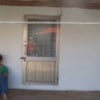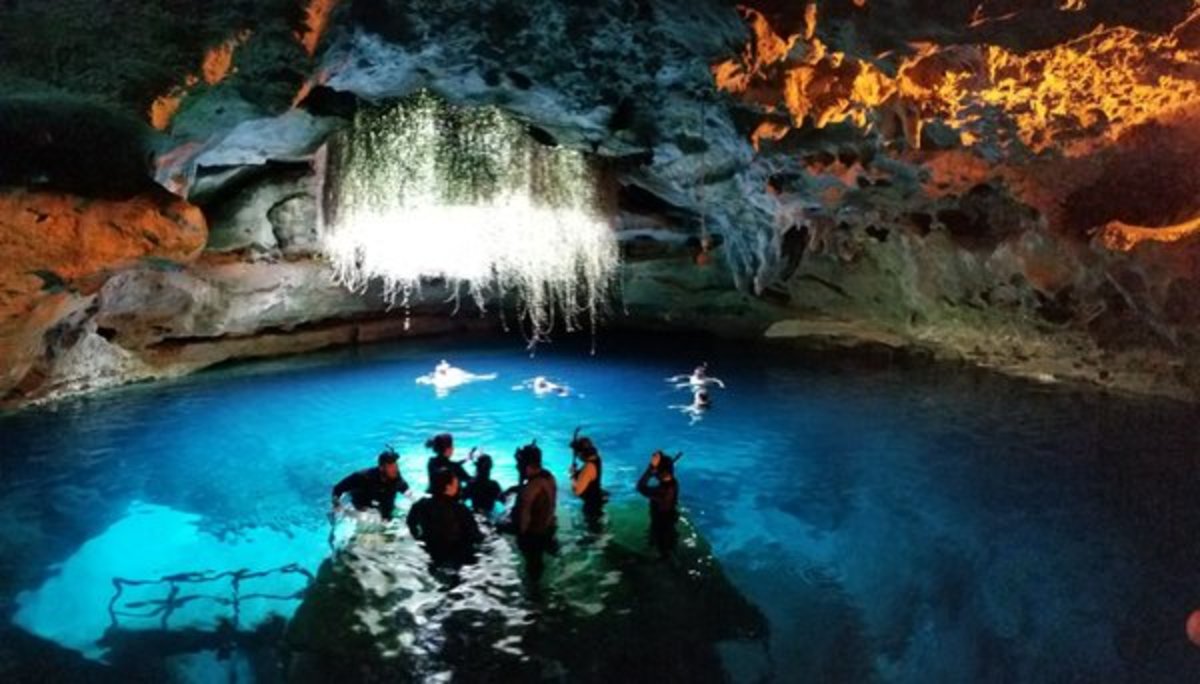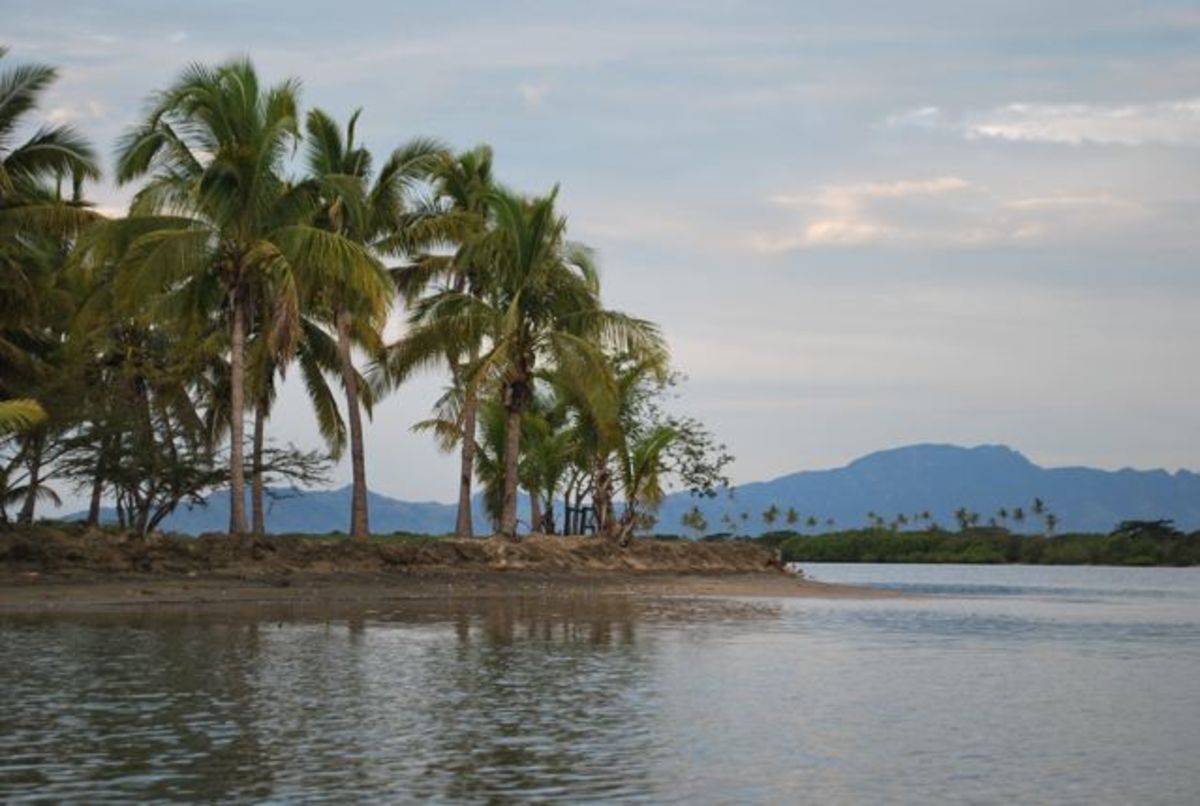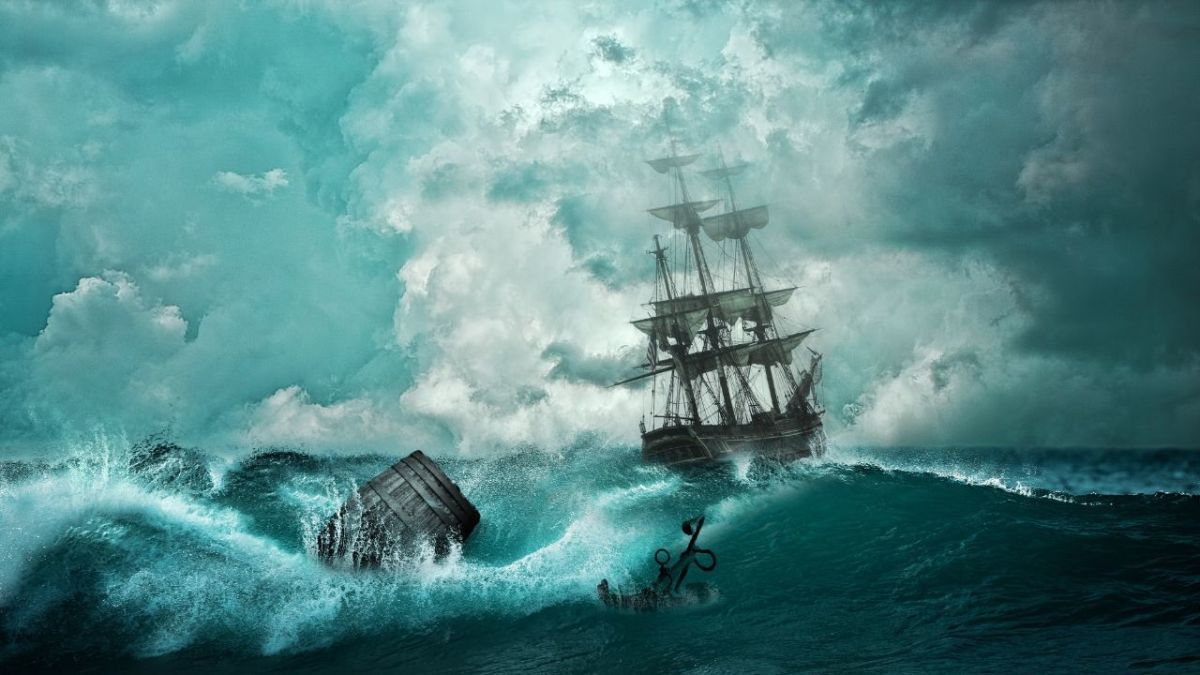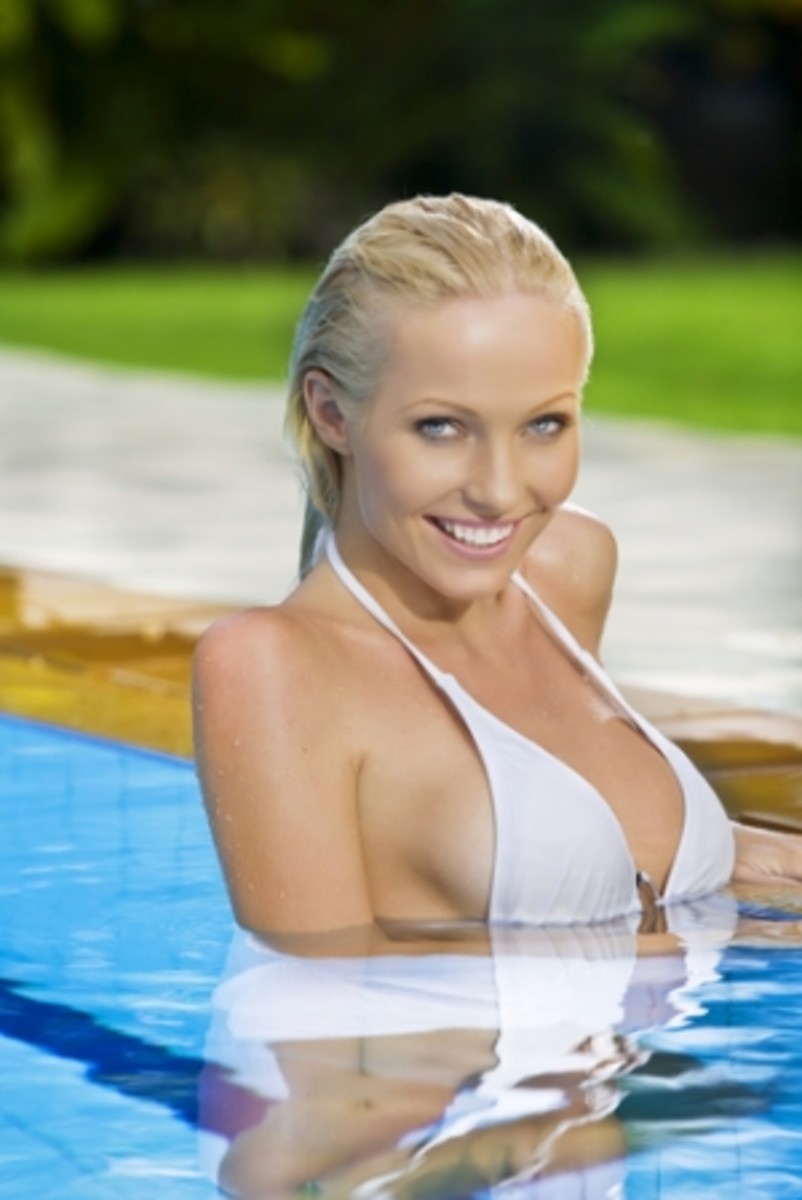My Journey to be a Padi Divemaster
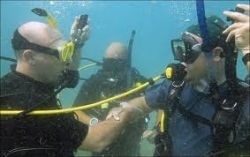
Becoming a Divemaster is lots of hard work, fun and diving!
I decided to become a Divemaster in order to have another career prospect, since I was getting tired of teaching English in South Korea. I chose the Padi Certification because it is the most popular Scuba Diving Organization in the world and would open up a job to me almost anywhere in the world. I really enjoyed my training and I'm confident that you will as well. I learned a few new dive skills (I was already an experienced diver), but mostly I learned a tremendous amount about how to lead people.
Upon finishing the course, I was confident in my skills and abilities and excited about the prospect of working in a dive shop. I have some advice for you on choosing a Course, what my experience was like and the requirements that you need to meet when starting and finishing the course. And of course, I have some tips for you on how to pass the Padi Divemaster Exams. They have a reputation as being difficult (especially the Physics!) but it's possible to pass without too much stress. Good luck on your journey!
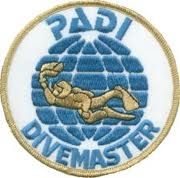
Why I decided to become a Divemaster
I've been living in South Korea for the past 6 years teaching English and am getting a little bored with it. It's time for a career change, and what better choice than to work in the scuba diving industry. Diving is one of my favorite things to do and it would be all the more amazing if I could get paid for it! At my job, teaching English at a Korean University, I get 10 weeks of paid vacation in the summer and winter. It's perfect for doing scuba diving training, while still getting a regular paycheck. The Divemaster course was the start, with the eventual goal of being a scuba diving instructor. It's not that easy to get (paid) work as only a Divemaster, but it's much easier if you're a Padi Instructor.
Once I'm an instructor, I hope to leave English Teaching (for a year or two at least) and work in some amazing, tropical location as a scuba diving instructor.
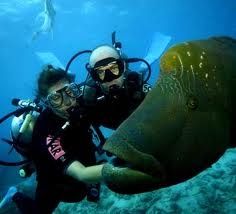
What Qualifications I needed to start the Course
-a certified Padi Advanced Open Water Diver and Padi Rescue Diver (you can have equivalent training from another organization).
-18 years old
-40 logged dives
-EFR Primary and Secondary Care Training within 24 months
-medical clearance for diving within the past 12 months.
What's most important to you in a Course?
Scuba Diving Knife
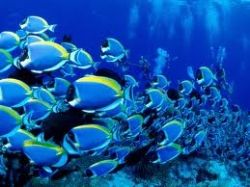
What Requirements I needed to meet
There are a few different skill requirements that you need to meet in order to successfully attain the Divemaster certification.
1. Knowledge Development, including final exams in things such as equipment, physiology and dive physics. These exams were not that easy and required a significant amount of studying. I studied before I did the course, while the other candidates doing the course with me studied at night, which was quite difficult. I enjoyed my time relaxing!
2. Rescue skills, in water and also an emergency action plan.
3. Swimming tests, including a 15 minute float and a timed 400m swim. I was not an amazing swimmer so I had to train for a few months in the pool before I started the course to make sure that I would pass.
4 Practical application skills. Practice in leading dives and assisting classes. Also a passing score on the 20 basic scuba diving skills.
5. At least 60 logged dives in a variety of situations.
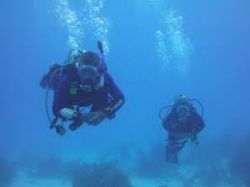
Tips on passing the Exam
+Swimming Tests
If you're not that comfortable in the water, it's time to get into the pool. Start swimming laps once or twice a week for a few months before your course starts. Work your way up to 500m, adding a lap or two each week. That way, in the actual 400m test, you'll have a bit of endurance left at the end. If you're a man with a lot of muscle, practice your floating skills, as you might find it quite difficult to stay afloat for 15 minutes. Women generally find this one quite easy due to their higher body fat content.
For the knowledge reviews, I recommend that you get the book beforehand if possible and finish the reviews before you start your course. Also, read the entire Encyclopedia of diving and do the practice booklet before the course. Make sure you go over your incorrect answers and know them inside and out. The physics is not that easy and does require basic math skills. So, if you're weak in this area allow yourself extra study time and try to do most of it before the course starts. This will enable you to have much less stress on your course, so you can relax at the beach and get that massage instead of studying all the time!
What Level of Scuba Diver are you?
Scuba Diving Safety Sausage
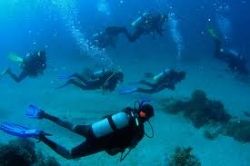
How Long was your Course?
The course I did was 6 weeks long. You can do the divemaster course in a variety of ways, including on weekends, or at nights at your local dive shop. Or, you can do internships that sometimes last up to a year and also short-courses that are only a couple of weeks. I chose the 6 week course because it was a nice balance between actually having time to learn how to be a divemaster as opposed to just passing the requirements as quickly as possible. And my winter vacation was only so long, so I couldn't really do a longer option!
I recommend the 4-8 week courses. Less than 4 weeks, and you probably won't learn that much. Longer than 8 weeks, and you'll just be used for free labor at the shop and quite possibly be bored and bitter at your situation as you see other people finishing their course much faster and going out and earning money.
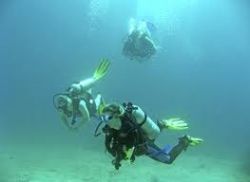
Which shop should I choose?
There are about a million and one scuba diving shops out there, all offering divemaster course. It can be a tough choice to pick a dive shop to do your course at. My advice is to look for the following:
1. Somewhere with Wicked Diving! You'll be much happier doing your course somewhere with nice diving, as opposed to trudging out to the freezing water (again) to do your skills and assisting in 2m of visibility.
2. A place with a clear idea of prices and what's included or not included. Nobody likes surprises, so make sure your shop is clear on fees and willing to answer your questions with facts instead of promises.
3. Not too many of too few Divemaster Trainees. If you are one of 40, you won't get that much individual attention. If you are the only trainee, you won't have anyone to share the experience with. Perhaps 3-6 other trainees is a good number. Having a dedicated divemaster trainer is a bonus as well.
4. A place with cheap costs of living (think Thailand!). If you do your course at the Great Barrier Reef, you'll spend an exorbitant amount of money on accommodation and food, if you don't already live there.
5. Somewhere with good reviews on the internet. If there are mixed reviews on places like Scuba Forums, or Tripadvisor, take a pass on that shop. Find a place that people have nothing bad to say about it.
Save a Dive Kit
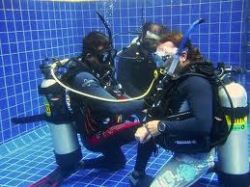
The Shop I chose was Wicked Diving in Thailand
The Scuba Diving Shop I chose to do my course at was Wicked Diving, based out of Khao Lak in Thailand. It was an amazing experience and I highly recommend them to anyone looking to do their Divemaster Course (SSI or Padi) as well as SSI Instructor course. I chose them mostly because of their excellent reputation for training, safety and looking after the environment. It was a 6 week course, with only 4 trainees, so we all got lots of individual attention. The best part about it was that 3 liveaboard trips to the Similan Islands were included! Amazing diving, and excellent practice in leading divers.
When I finished the course, I felt totally capable of leading divers and doing things like scuba reviews. Wicked Diving: I love you!
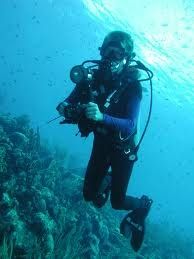
What did you actually do during those 6 weeks?
I did a lot of stuff during my training. For 9 days, I was on live-aboard trips to the Similan Islands, learning everything i could about running a trip. Some other days, I was in the pool doing skills and assisting with classes. Plus, there were lots of day trips to various places where I got to practice my skills in real-life. One day was a try tech dive, which was an interesting experience. One day was swim tests, and another day was in the shop, learning how that works. I got to plan a day-trip and get that all organized the day before it happened. Sometimes, we had special lectures on things like dive physics and one day we did the oxygen provider course. For a special trip, we went to Phuket to check out the chamber.
Basically, every day was different and I was rarely bored! There is a lot going on in a busy shop like Wicked Diving.
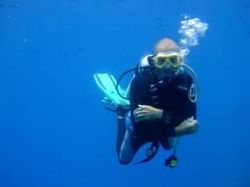
Job Options after the Course
What about a Padi IDC?
It is possible to get a job as Divemaster, after finishing your Padi Course. However, in most parts of the world, this will not be well paid, and in some cases you'll basically be working for rent and food. In Thailand, the going rate is about 1000 Thai Baht for a day of work, which is about $35 US Dollars. Not amazing!
If you want to increase your earning potential, it's best to do a Scuba Diving Instructor Course. Your earning potential increases significantly as you teach classes. You will also be much more likely to be able to find a job almost anywhere you go in the world.
Languages is another big factor in getting work as a Divemaster or Instructor. Brush up on your second or third language and you'll find job options in abundance.

Should I get the Scuba Equipment package included with the Course?
At many dive shops, they have a package that includes accommodation, scuba equipment and training. Including accommodation and training together is fine, but I recommend that you don't get the equipment that comes with the package. It's often the cheapest junk out there, suitable for rental gear but not really someone who wants to work as a dive professional.
Usually, the regulators are unbalanced, which means that they'll breathe a bit harder at depth or when you're low on air, as opposed to balanced regulators which breathe evenly no matter how deep you go, or how much air is in your tank. Most people buy a regulator and expect it to last for 10 years or more, so don't waste your money on crap at the start! You'll have 10 years of poor performance. Instead, just buy your own quality gear.
The buy the equipment package, or not?
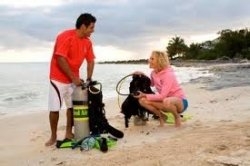
Where am I now?
One year after finishing, I went to the Philippines and did the Instructor Course. I passed (thankfully) and was happy that Wicked Diving had trained me so well. The course was easier for me than the other candidates who had not had the best training. This summer vacation, I'm working at a dive shop in South Korea, mostly as a Divemaster but also doing some instructor things. It's been an amazing experience so far and I'm excited about the prospect of doing more of it in the future.
